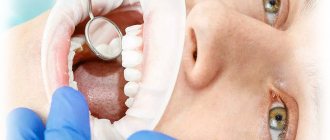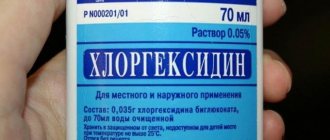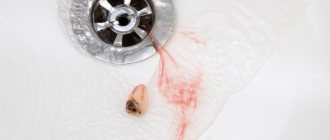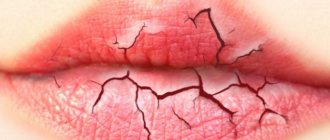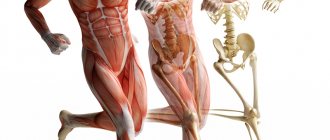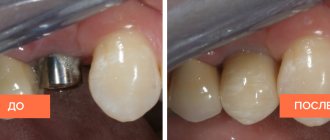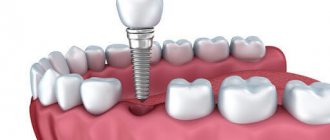21.07.2021
Author: Dentist-periodontist, therapist Stopinskaya Ulyana Yurievna
Modern dentistry is impossible without reconstructive surgical interventions. Almost all of our patients undergoing dental rehabilitation have encountered one type of surgical treatment or another: implantation, closing recessions, replanting grafts, etc. The success of such treatment depends on many factors. We will look at some of them in more detail.
To begin with, it should be noted that for quick and high-quality healing, the doctor must meet the following conditions:
- Healing by primary intention (bringing together the edges of the wound with sutures). Wound healing refers to all the physiological and regenerative processes that occur when restoring the integrity of damaged tissues. Surgical wounds are created under relatively controlled conditions, i.e. The surgeon can influence certain factors to a certain extent, for example, the type of incision, the method of creating the flap, the width of the receiving bed, and the method of suturing.
The photo shows a view of the wound on the 14th day after surgery. The seams are visible. Healing by primary intention.
- Good blood supply to the intervention area . The difficulty of healing after implantation or plastic periodontal surgery is often due to the fact that the wound is located in the projection of the surface of the tooth or implant, which does not contain blood vessels. This reduces local immunity and makes it difficult to deliver nutrients.
- Cleanliness in the intervention area. The oral cavity is colonized by a large number of bacteria that can directly affect wound healing. The doctor must ensure that on the eve of the operation the patient undergoes professional hygiene and is trained in postoperative oral care.
The photo shows the view before and after professional hygiene
Now let's take a closer look at the factors influencing wound healing. They can be divided into general and local.
Causes of sores in the mouth
Purulent ulcers in the mouth can appear for various reasons. They are often the result of dental diseases.
The list of reasons may include the following:
- viral infections (herpes simplex or herpes zoster);
- fungal and bacterial infections;
- irritation of the mucous membranes from smoking and certain foods (nuts, cheese, citrus fruits);
- ulcerative stomatitis;
- chemotherapy drugs;
- frequent stress and nervous tension;
- oral injuries;
- hormonal changes.
Complications after gum injuries
If you do not properly care for the oral cavity, as well as ignore a scratch on the gum, serious complications will always follow - infection in the scratched gum and the occurrence of an inflammatory reaction. How to understand that a complication has appeared?
- If a scratch has a whitish tint and its edges rise above the level of healthy tissue, this is a guarantee of a foreign infection.
- If the healthy tissues around the lesion are red and there is also swelling, this is evidence of inflammation (the body’s response to the introduction of a pathogen into a painful wound).
- If pus is released from a scratched gum, then an intoxication syndrome may occur in the body (fever, increased general weakness, increased pain in the mouth, a feeling of brittle bones).
- If there is a throbbing pain in the damaged areas, radiating throughout the jaw.
Cyst in the mouth of a child
If symptoms are detected, you should immediately consult a dentist, because the infected exudate from the scratch gets into the roots of the teeth and deep into the gums, causing local complications (stomatitis, gingivitis). Since the mucous membrane is supplied with blood, its flow causes the infectious process to become generalized.
How can you get rid of sores in your mouth?
How to treat wounds in the mouth if they appear and cause discomfort. Initially, you need to determine the true causes of their occurrence. This will help not only choose the right treatment, but also reduce the risk of relapse. If simply stomatitis has formed, it is not difficult to recognize it, but a purulent wound in the mouth of unknown pathogenesis is a reason to consult a doctor. Particular attention should be paid to lesions that do not heal for more than 10 days.
For a quick recovery, use:
- medicinal ointments with anti-inflammatory effect;
- antibiotics if the cause is a bacterial infection;
- complex of vitamins;
- rinsing with oral antiseptics;
- protective applications;
- painkiller injections;
- laser cauterization.
Causes of scratches on gums
The periodontal tissues and periosteum of the lower and upper jaw are in close contact with the mucous membrane of the gums. Mucosal tissue not only plays a protective function, but also serves as a conductor for metabolic reactions.
The tooth is nourished due to reliable blood supply and innervation in the gums, and any slightest damage will always result in a painful sensation. Thanks to this, the dentist can determine the location of the lesion and its parameters.
A scratch, be it a microcrack that is not visually visible, is a reason to seek specialized medical help. In the oral cavity (on the surface of the tongue, cheeks) there is a large amount of foreign microflora, which, if they get into the scratch itself, cause serious problems for the teeth and the body as a whole.
There are three reasons that cause gum damage:
- Mechanical factor - when the oral mucosa is damaged by hard food during eating (for example, when the gums are crushed with hard food: crackers, sweets, seeds) and during therapeutic measures (the gums are damaged during dental treatment - touching with a needle, drill, etc.). Mechanical damage (scratches) is more often caused by young children who carry unknown things to their mouths, gnaw or chew them.
- Chemical factor - when the mucous membrane is exposed to various chemical compounds (acids, alkalis).
- Thermal factor - ingestion of too hot food or water causes burns, and exposure to cold damages teeth.
One should take into account the fact that the mucous membrane becomes more susceptible when the human body’s immunity is reduced. Typically, this condition is caused by concomitant diseases: diabetes mellitus, HIV infection, benign and malignant neoplasms, sexually transmitted diseases.
In children
Since gum scratches more often occur in children who want to “taste” everything, their parents should carefully examine the oral cavity every day for the presence of such scratches. In children, the immune system is still weak and the protective mechanism in a small body may not work, and then a small scratch may be complicated by swelling and redness of the soft tissues around the lesion. Externally, the child will be restless due to soreness in the mouth.
The teenage generation has a high risk of bruises (street fights, football, bad falls). Vivid symptoms of damage include severe pain in the mouth, bleeding gums, a knocked out tooth, etc.
What can the patient do after removal?
To help the wound heal, the patient must take steps to prevent secondary infection. To do this, immediately after the intervention you need to accurately follow the general recommendations of the dentist.
- Press the cotton swab placed in the hole firmly with your teeth. This is important to stop bleeding and blood clot formation.
- For the same reasons, you should not eat or drink for 3 hours.
- Once a clot has formed, it is necessary to exclude the possibility of injury and removal. Do not rinse your mouth vigorously, inspect the wound with your fingers or a toothpick, smoke, drink alcohol, hot foods and drinks, or solid foods.
- Visits to the fitness center, sauna, and beach should be excluded for several days. Physical activity and overheating can lead to complications.
What to do if your denture rubs
It’s not just the first days of installation that are difficult for many patients. Often, removable dentures constantly rub against the gums due to their irregular shape. In this case, therapeutic treatment will not be successful, so dentists carry out a correction or a complete change of the prosthesis.
The plate is filed at the points of contact with the mucous membrane. Thus, the load on the gums will be redistributed and the problem will be solved.
After the manipulations, the specialist recommends a remedy to relieve inflammation caused by rubbing. For example, a gel for lubricating gums. It is important to see a doctor immediately, otherwise complications are possible - inflammation of the inner layers of the jaw apparatus, healthy periodontal tissues.
Signs that your gums are inflamed
To decide what to do if the gums under the denture become inflamed, it is necessary to correctly diagnose the pathology.
The main symptoms indicating an inflammatory process are:
- Redness appears in the prosthetic area. It can spread to surrounding tissues.
- Drops of blood are noticeable when brushing your teeth, turning into constant bleeding.
- Feeling of discomfort, pain when chewing food.
- It is possible to relieve inflammation for several hours, then the situation worsens again.
- Gradually, bad breath begins to appear, which does not disappear after the usual procedure of brushing your teeth.
- The tongue feels swelling of the gums.
If the situation repeats frequently, then the pathology is likely complicated. In advanced cases, the main symptoms include chills, hyperemia of the surrounding gum tissue, increased body temperature, and the gums of the entire part of the dentition become inflamed.
The patient may notice a change in the angle of the artificial tooth, as well as the appearance of gum pockets. Pieces of food get into them, which creates a negative environment for the proliferation of harmful bacteria.
In case of an allergic reaction to the prosthetic material, a rash, burning, dryness, and itching on the skin of the face is observed. You should immediately seek help from your doctor.
Treatment options
The mucous membrane is very sensitive, so smearing wounds on the gums with iodine and brilliant green is strictly prohibited to avoid getting burned.
Medicines
To treat wounds in the oral cavity, special ointments are used that have an antiseptic effect: Solcoseryl, Metrogyl Denta, Apident. These drugs contain components that eliminate pathogenic microflora.
If a scratch causes pain, special ointments are used to relieve pain and strengthen the gums.
In addition to gels, it is recommended to rinse with the following solutions:
- Chlorhexidine - to clean the wound and protect against germs.
- Miramistin - to prevent infection with fungi leading to stomatitis.
- Hexoral, which contains levomenthol and hexetidine, which have an antiseptic effect.
- Hydrogen peroxide, which cleanses the scratch from dirt and stops the spread of inflammation.
If a white scratch is discovered, indicating suppuration, you cannot do without the help of a dentist, since you will have to open the wound. The doctor will remove any accumulated fluid and treat the cut with antibiotics. If a child has damaged the gums, one of the following antiseptics intended for children will help:
- Cholisal - for children after one year, promotes rapid restoration of damaged tissues, relieves pain.
- Kamistad is an ointment consisting of natural chamomile oil, intended for healing scratches.
- Dentinox-N is used not only for teething, but also for suppuration, redness and burning of the gums.
- Kalgel is an antibiotic that cleanses the wound and stops suppuration.
- Glycerol - used to moisturize and soften the damaged area, as well as to prevent the appearance of scars.
It is recommended that every mother have these medications in her medicine cabinet in order to promptly lubricate the scratch and protect the child from infection. Any of these drugs are lubricated on the gums 2-3 times a day. In this case, it is necessary to observe how the baby tolerates the effect of the medicine, whether there is an allergic reaction.
ethnoscience
Having scratched the gum, you need to immediately begin treatment to prevent inflammation. To do this, you can use folk remedies based on medicinal herbs.
You can quickly and easily get rid of redness and burning using the following formulations:
- 1 tsp tincture of calendula diluted in 200 ml of water - used to rinse wounds, and also used as a compress;
- propolis lozenges for application to the inflamed area of the gum;
- decoction of chamomile and sage, for the preparation of which 1 tsp. dry herbs pour a glass of warm water. This natural antiseptic helps get rid of purulent contents.
In order for the treatment to give the fastest possible effect, you should limit the intake of solid foods, exclude hot seasonings and sour pickled foods from the diet.
By choosing the right oral hygiene products, you can reduce the risk of scratches on your gums. Quitting smoking and strengthening the immune system will help the body fight off any infection. In summer, it is advisable to include more vegetables and fruits in your diet, and take more walks in the fresh air. In winter, it is recommended to drink a vitamin complex to increase immunity.
What problems may arise after tooth extraction?
Many patients experience swelling and pain in the gums during the first time after tooth extraction, but in most cases these problems quickly disappear. If the removal was traumatic, recovery may take longer. What factors influence the rate of wound healing?
- Her condition immediately after the operation, determined by the qualifications of the surgeon.
- The addition of a secondary infection, in most cases provoked by the patient himself.
- The patient has diseases that affect blood clotting and prevent the formation of a blood clot.
Therefore, it is so important to seek qualified dental care - in a reputable clinic, with an experienced surgeon who does not make annoying, unforgivable mistakes during surgery.
